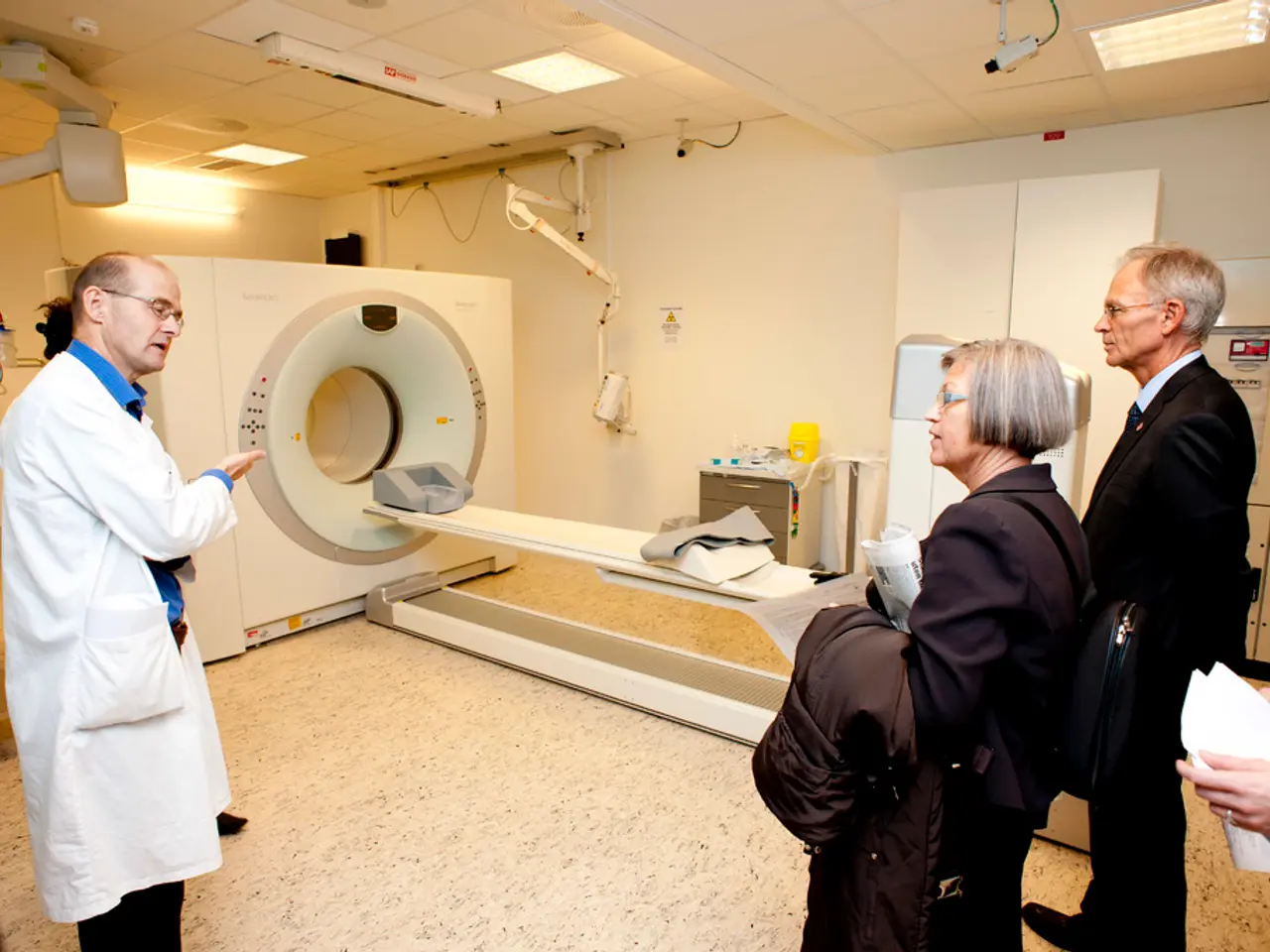The Use of AI in the Healthcare and Recruitment Sector: Battlegrounds of Advancement
=======================================================================
In the rapidly evolving world of healthcare, Artificial Intelligence (AI) is redefining the workforce landscape, altering hiring practices, and necessitating a unique blend of skills. This shift is evident across various sectors, including healthcare and medical, where demand for roles like nurses, pharmacists, clinical researchers, and telehealth coordinators is soaring.
Recruiters are increasingly seeking candidates with a combination of clinical workflow knowledge and experience with machine learning tools. Employers are now including "AI integration experience preferred" in their job descriptions to attract the right candidates. This trend is not limited to traditional tech hubs; growth in AI expertise and hiring is spreading to non-traditional regions across the U.S., reflecting broader accessibility.
AI is transforming drug discovery, requiring pharmaceutical companies to hire biomedical researchers, data scientists, and regulatory experts who understand platforms like AlphaFold, IBM Watson, or BenchSci. The surge in pharma job posts that require hybrid skill sets, including biology, chemistry, and AI fluency, is a testament to this transformation.
Clinical trials used to take years, but AI can now identify eligible participants, monitor data in real time, and automate reporting. This creates demand for clinical trial managers, compliance officers, and site liaisons who can integrate with AI platforms like Medidata or TriNetX. Hospitals are looking to fill roles like AI-assisted care planners and digital health strategists, positions that barely existed two years ago.
The role of radiologists, technicians, and imaging analysts is changing to include working with AI systems. AI is being used in radiology and imaging analysis, improving accuracy and speed compared to human radiologists alone. Telemedicine has become a standard in care and is evolving in 2025, with AI chatbots, virtual assistants, and NLP tools handling tasks like triage, scheduling, and documentation. There is an increase in the hiring of telehealth support, remote care managers, and digital experience specialists at scale. These telemedicine roles require a mix of tech support, UX, and patient engagement skills.
In 2025, the top trends in AI-powered healthcare hiring include a shift toward roles that integrate AI capabilities with clinical and operational expertise, a focus on AI-enabled virtual nursing and patient monitoring, and increased workforce training to build an AI-capable healthcare culture. Simultaneously, AI is automating and reducing demand for many traditional, lower-level roles in healthcare administration and support, while new specialty roles in AI ethics, data governance, and AI integration leadership are growing rapidly.
Large healthcare organizations are focusing on building an AI-enabled workforce culture, investing in staff training around AI tools, and ensuring strong executive leadership to integrate AI effectively and ethically. Ethical AI integration and data governance remain critical ongoing concerns, with healthcare leaders prioritizing trust, transparency, compliance, and patient engagement in AI deployment.
Aaron Dhaliwal, the CEO of avua, an AI-powered hiring platform, emphasizes the importance of this shift, stating, "AI is revolutionizing healthcare hiring by identifying talent, assessing skills, and delivering faster, smarter matches for employers." Avua works across six sectors, including healthcare and medical, with demand soaring in these industries. The platform supports clients across North America, Europe, and the Middle East.
Using keywords like "telehealth," "virtual care platforms," and "AI triage systems" can help job seekers get noticed. The number of roles mentioning "AI in diagnostics" on avua's platform has grown by 54% year over year, a testament to the growing importance of AI in the healthcare sector.
In summary, AI-powered healthcare hiring in 2025 is characterized by growth in specialized, AI-complementary clinical and operational roles, enhanced by comprehensive workforce training and leadership, alongside consolidation and automation of lower-level jobs, all grounded in a strong framework of ethical and effective AI use.
- "Aaron Dhaliwal, the CEO of avua, an AI-powered hiring platform, is actively seeking candidates with AI integration experience, particularly in the healthcare and medical sectors, to meet the surging demand for such skills."
- "Artificial Intelligence is not only transforming drug discovery by necessitating data scientists and biomedical researchers, but it is also altering radiology and imaging analysis, thereby requiring imaging analysts and technicians with AI proficiency."




